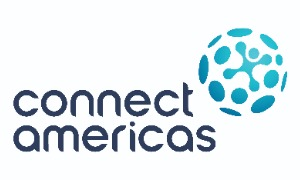Even though the situation in each country is different, there are opportunities for companies to learn from others that have already been through this. Here are some:
In times of crisis, the company must show support and empathy
With the restrictions and measures that have been taken to prevent the virus from spreading, there are changes associated with people's purchasing behavior and brands are asking themselves how not to lose sales or how to increase them. But what if we also focus on how to help our clients during this outbreak? Focusing solely on profits amid the current situation can be counterproductive for the company.
For example in China a high number of E-Commerce and technology companies, including Alibaba, have shown their support through donations to the Red Cross and other health agencies that are fighting the virus.
Other brands have joined by sending messages of support and encouragement to quarantined people (always recommending complying with government recommendations to slow down the spread of the virus) or facilitating access to mobile wellness apps. For example, Nike changed its slogan from “Just Do It” to “Just Don’t Quit”, and Under Armor enabled free access to its workout program app.
Rethink efforts and strategies continuously
We are in a panorama of constant change, which implies that strategies for facing the crisis must be progressive: response, recovery and post-recovery strategies. Some of the companies that have recovered faster after previous crises are not those that only had solid plans from the start, but those that had continuous detection and response plans.
A good example is Master Kong, a Chinese instant noodle company. Master Kong reviewed sales dynamics daily and prioritized efforts. Thanks to this, they managed to anticipate the shortage and subsequent closure of large supermarkets and focused its sales strategy towards different markets: small stores and e-commerce. They were also constantly monitoring the reopening plans of the major retailers in order to gradually adapt their production chain. As a result, in just a couple of weeks it had recovered by more than 50% and was able to supply 60% of the stores that reopened during this period, three times more than some of their competitors.
Have a clear communication with your employees
In this time of uncertainty, it is essential that company executives clearly guide their employees to guarantee their safety and to help them adapt to the possible new working methodologies, which aim to follow the guidelines set by the company and by governments during the COVID-19 outbreak.
According to Harvard Business Review, , some Chinese companies have established very specific guidelines and operating procedures for their employees, such as instructions to limit exposure while dining in the company's public dining rooms and emergency plans for abnormal situations. In addition, some companies purchased preventive equipment and instituted health checks for employees and their families from the early stages of the outbreak.
The importance of fighting misinformation
Easy internet access, hyper connectivity, and the popularity of social media make information and misinformation travel faster.
To counter myths and ensure that society is consuming truthful information, many companies have developed new information tools. For example Baidu, the most used search engine in China, now shows at the top of its landing page confirmed and suspicious cases of the virus (in real time) so that people can avoid the most affected areas.
Another case is Tencent "Medipedia", a health care encyclopedia that has included new entries on virus symptoms, medical treatment and preventive measures, edited and reviewed by doctors. Tencent also released a map of clinics to allow users to search for the closest ones in case of emergencies.
Finally, a tool that has become very popular in China is "JiaoZhen", a platform that searches for false information on the net to help users to differentiate facts from myths.
--
Undoubtedly, many new cases such as those exposed in that article will emerge in the coming weeks from countries such as South Korea, Italy, Spain, among others. It is important for companies in Latin America and the Caribbean to inform themselves and apply some of these lessons learned both at the business level and at the society level, in order to generate a positive impact and counteract the economic effects that the spread of the virus brings.



Follow Us